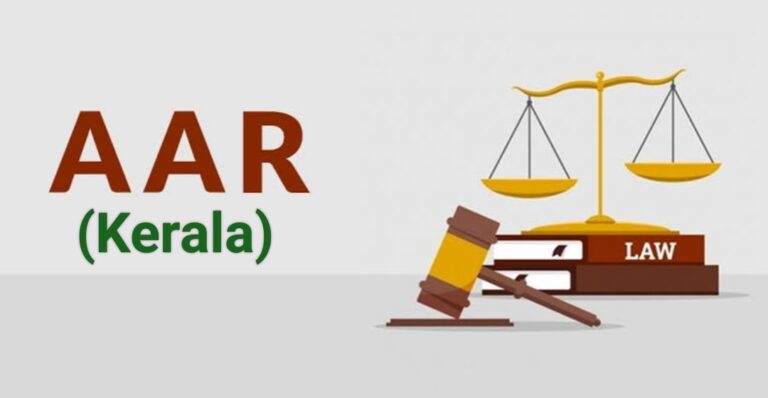The issue of whether supply of medicines, implants, consumables, and allied items to in-patients by a hospital is taxable under GST has been a matter of interpretation and litigation. In a significant ruling, the Kerala Authority for Advance Ruling (AAR) in the case of Believers Church India addressed this issue and clarified that such supplies, when made to in-patients as part of their treatment, constitute a composite supply, with the principal supply being health care services. Since health care services are exempt under Notification No. 12/2017-Central Tax (Rate), the entire composite supply — including medicines and other components — is also exempt from GST.
This ruling provides critical clarity for hospitals and charitable medical institutions on how GST should be applied to bundled services rendered to in-patients.
🏥 Case Overview
- Case Name: In re Believers Church India (advance ruling by AAR Kerala)
- Citation: [2025] 176 Taxmann 379 (AAR Kerala); also reported at 2025 (7) TMI 194
- Decision Date: April 2, 2025 (personal hearing held on that date)
🧾 Facts
- The applicant is a charitable trust operating a multi‑specialty hospital and related institutions.
- The hospital supplies medicines, implants, consumables, food, and lodging to in‑patients, either under packaged billing, itemized billing, or even when medicine costs dominate the bill.
- The key question posed: Are these supplies part of a composite supply of health-care services, thereby exempt under Notification No. 12/2017‑CT (Rate)?
⚖️ Ruling
- AAR Kerala ruled that for in‑patients, these supplies are composite supplies, with the principal supply being health-care services.
- As health-care services are exempt under Serial No. 74, Notification 12/2017‑CT, the entire composite bundle—including medicines, consumables, implants, food, lodging—is exempt from GST, regardless of packaging or billing format
🔍 Key Principles
- Composite Supply Doctrine: When health-care services are the principal supply, ancillary items provided as part of treatment are automatically included in the exempt bundle.
- Billing Structure Irrelevant: Whether billing is full-package, partial-package, or itemized, the exemption holds as long as the principal supply remains, and ancillary items are bundled.
- Value Ratio Doesn’t Matter: Even if medicine or consumables make up the majority of the billed amount, exemption still applies
📌 Precedents Cited
AAR Kerala anchored its ruling in earlier judgments, including:
- Ernakulam Medical Centre (2019)
- Baby Memorial Hospital (2019)
- St. Thomas Hospital (2021)
- And the CMC Vellore Association (Andhra Pradesh AAR, 2020)
✅ Takeaway for Healthcare Providers
If your institution provides medicines, implants, food, consumables, or lodging to admitted patients as part of treatment, they qualify as composite supplies under GST. This entire package is exempt from GST, even if billed separately or dominated by medicine costs.
